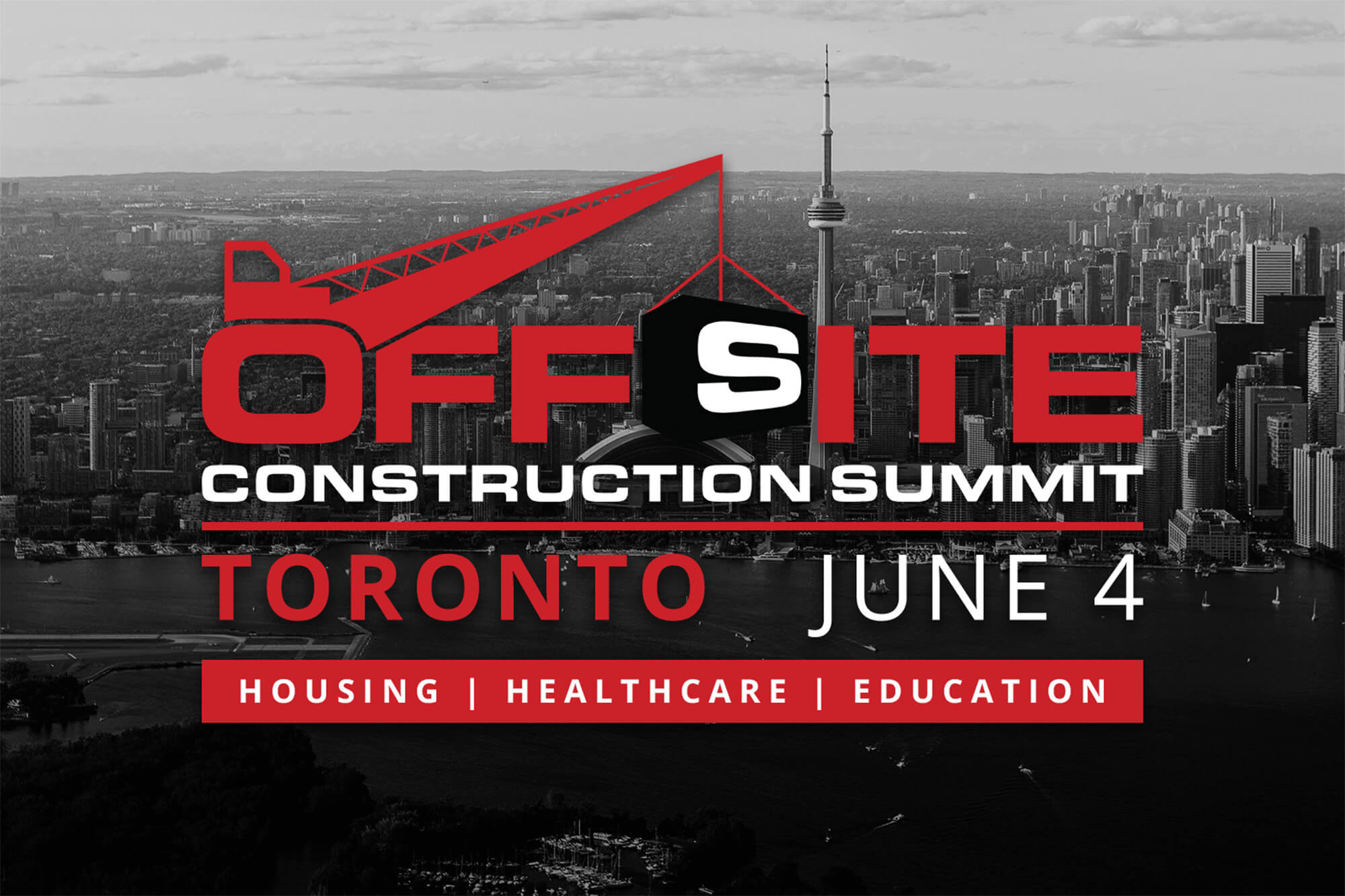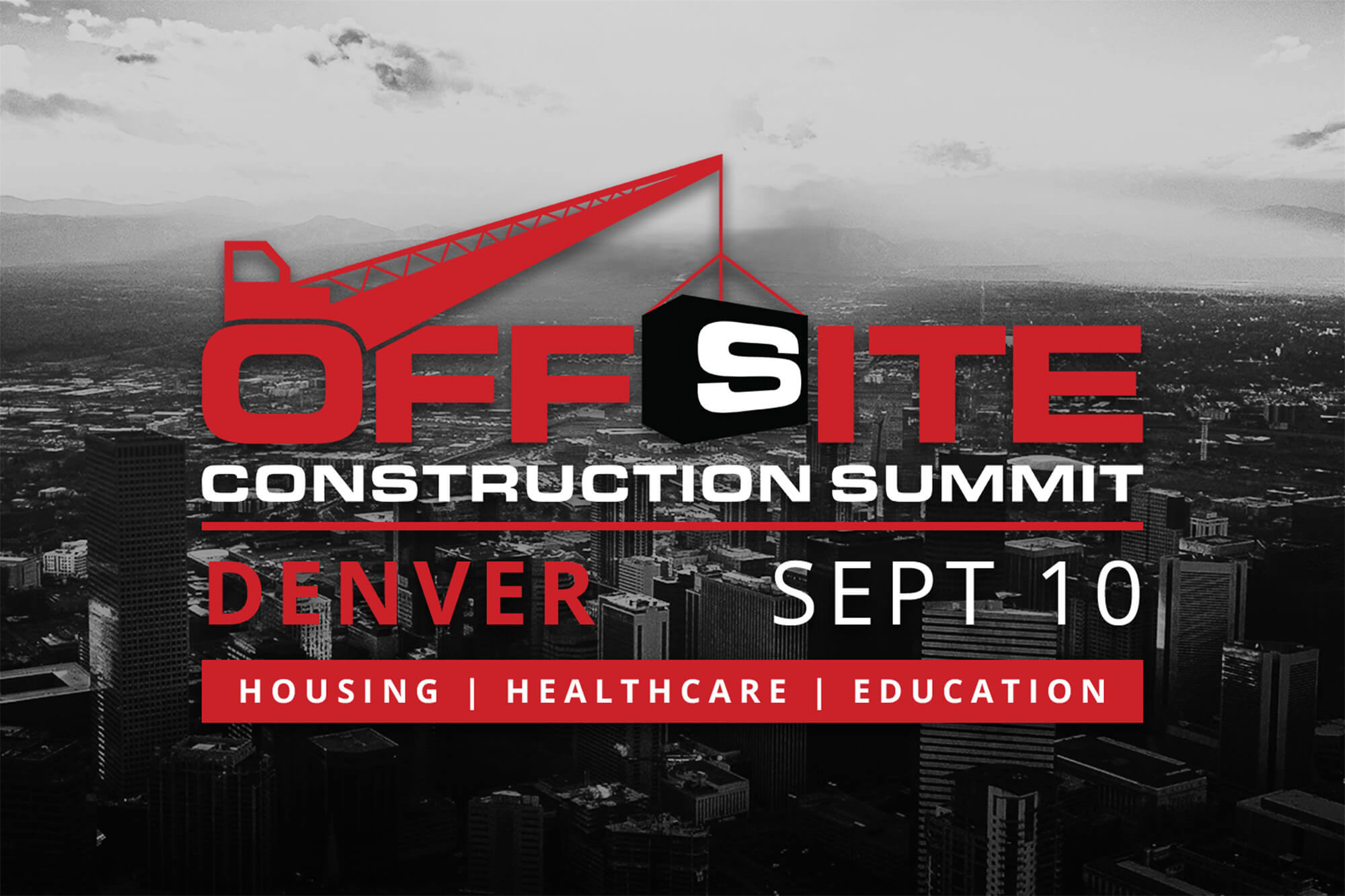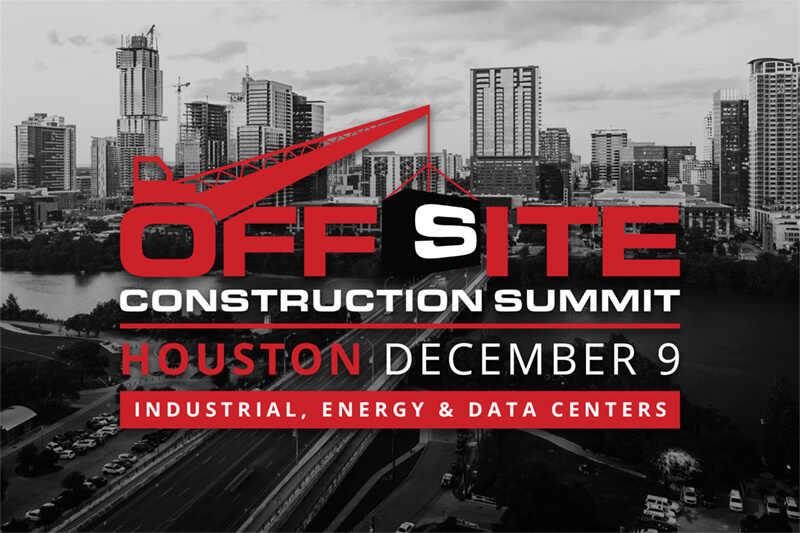
Exploring the Advantages of Modular Construction in the US and Canada: Adaptability, Cost & Speed
An interview with Rhys Kane, Director of Business Development, ROC Modular
Rhys Kane joins Tom Hardiman to discuss how ROC Modular is diversifying its factory offerings to adapt to different project needs, including affordable housing, multi-story commercial projects, and relocatable structures.
Interview transcript
Tom Hardiman
Hello and welcome to another edition of Offsite Insights, the show where we talk to leading experts and professionals in the modular and offsite construction space. Today, I'm joined by Rhys Kane from ROC Modular in Alberta, Canada. Rhys, how are you doing today?
Rhys Kane
Very good, Tom, how are you?
Tom Hardiman
I'm doing well. Thank you. Thank you very much. Thanks for joining us today and tell us a little bit about who you guys are. I know we're going to see you on June 5, in Berkeley at the next Offsite Construction Summit. But for those who may not get there, why don’t you tell us a little bit about who you are and how you got into the modular industry.
Rhys Kane
Yeah, absolutely. Thanks for having me on today, Tom. It’s a pleasure to connect with you again. I've been in modular for about a decade now. So, just enjoying the ride. My first position was with a company converting steel shipping containers into modular units. We did that for a couple of years and that was an exciting place to be. We did some bigger projects with containers, hotels and some senior complexes and realized that there were some limitations to that. There's a great industry of repurposing shipping containers, lots of great companies with an MBI that do that. But trying to scale it to the position that we were trying to do we recognized there were some restrictions, so shifted more to kind of steel modular. So did that for a while and then I had an opportunity to transition to the wood modular industry and more on the housing side, which is really where I've been focusing for most of my career in the modular industry. I worked at one of the largest modular companies in Canada looking after sales for the West. Again, mostly focusing on permanent modular, affordable housing, hotels and student dorms, things like that. Then a year ago, joined ROC Modular and rejoined Joe Kiss.
So, Joe Kiss is the president here at ROC, and I've worked for Joe for a couple of different companies. Now, third time's the charm, hopefully, working with Joe here at ROC. Joe has been doing some great things with ROC. It's a smaller, privately owned, business well-funded, well capitalized. It also has a strong focus on that permanent modular, affordable housing, market rate, multifamily housing space. So, that's where we're very heavily involved in. There are lots of projects going on right now in Western Canada and also some projects down into the United States.
Tom Hardiman
Okay, well, you kind of lead into my next question, but that's great. I was going to ask you about ROC Modular, but I know you guys recently took home some hardware from the Modular Building Institute's annual Awards of Distinction. For those that don't know, that's MBI’s award show they do there. He's got it handy.
Rhys Kane
Funny, you mentioned that, Tom. I was going to mention that. Here’s the trophy right here.
Tom Hardiman
I think, if I got this right, you guys won Best of Show for relocatable buildings, which is the best relocatable building in the industry that was voted on by the participants there. I think you got first place in health care and I think you got the judges choice, which was the highest score among all the entries last year from our panel of judges. So nice haul for you guys at ROC Modular for a great job you did last year, obviously.
Rhys Kane
It was a great haul. It was more than we ever kind of dreamt of and expected really. We were absolutely over the moon to receive the award for the Red Deer Recovery Project, which was the first place in the healthcare category. Then as the evening went on, for you to announce that it also won the Judges Choice Award, I think Joe nearly fell off his chair and was so absolutely over the moon. Then with the Astor Place supportive housing project, people put so much work into those projects and a lot of the factory guys don't really see the results. They see the modules getting built under production. We as a company, really try to show them the results. Six months later they see nice marketing photos end up on the website and things like that. So these awards really kind of queued us to the people on the floor who built these things. A week later we did a townhall and we made a point of kind of announcing these winning entries. I’ve never seen people just so captivated and listening. Normally they're just waiting for lunch after and off they go.
I mentioned to them that there were projects from a 44 Storey, modular high rise from the UK. There were these big buildings in China, there was an amazing project from South Korea and one from Australia. It really hit home like wow. Little ROC Modular in southern Alberta has built these projects that have won these awards. So yeah, it was absolutely great and a great event. World of Modular is always great and we love to go. We see it as a great to really help to raise the profile of the modular industry overall. So we're really an active participant. Joe and I sit on some of the councils and we had a booth at the event. We like to be a part of it and entering the awards is just a really good showcase for these modular projects.
Tom Hardiman
Well that's really cool you shared it with the factory workers because you're right. They day in and day out, see modules go down the line, or panels, if that's your thing, but to circle back to them and say, Hey, guys, remember that work we did last year on this project? It got recognized. So that's really cool that you guys do that.
Rhys Kane
It was awesome the Red Deer recovery project specifically was recognized how it was because it really was a complicated project. It really achieved a high level of a showcase of what modular can achieve. It's a very sophisticated building because it's a drug recovery community. The health care aspects and requirements , the energy requirements, overall just an amazing project. By winning the award, it gives us the ability to really promote it to the next level because it's now an award-winning project. We put that on LinkedIn and all the other things that get notice for the industry.
Tom Hardiman
Not to not to just keep harping on that, but you're right. Some of the entries this year that I saw were phenomenal. I mean, if it was judged based only on aesthetics, you see this 50 Storey, modular
building in the UK, and you're like, holy smokes, that's amazing. But it's also judged on the technical innovation and the efficiency. So, again, kudos to ROC Modular for obviously, a great year and a great team working on those. So, you've talked about supportive housing and health care. For those that will be attending in Berkeley on June 5, what can they hear from you? What are you guys going to have on display? What are you talking about? What's on the line at ROC Modular, so to speak?
Rhys Kane
So, whenever we participate in these events, we really look at it both from a ROC Modular perspective, but also an industry perspective. We're there to kind of show rising tide, tide floats, all boats from an industry perspective. So definitely there to support the industry and to be there as modular advocates to answer questions to developers, architects and GCS that are in the room. We're looking forward to being there from that perspective for sure. We always love these events. We're going to be attending the one in Denver and obviously, the MBI one that I already mentioned. But also from ROC Modular’s perspective, is the Canadian companies that can supply into the United States. That's obviously a big angle for why we would be there in Berkeley and we're looking forward to being there.
The Canadian dollar is 73 cents on the dollar, today, I believe. It's been hanging around that mark for four or five years at least. So, it makes us quite a good option to procure modules out of Canada. We build to the same sort of standards and codes if we're building in say, Montana or Washington. We're working through the state submittal program. So, I think it's good from an industry perspective. The more factories that are available, makes it more of a credible option for a developer to proceed the modular route. If they've only got one or two factories to choose from, it doesn't make it so compelling whereas if they've got more competition. I think overseas is one, Canadian companies right across the border with our factory. For instance, our factory is only a one and a half hour drive from the Montana border.
So any of the projects down into Bozeman is extremely busy and active with modular and the Mountain Parks regions of Colorado. So, there's free trade, no tariffs, competitive, very compelling dollar exchange. We know how to build big, large scale multi-unit multifamily projects. So, we'll be there at the show kind of talking about some of the projects we're involved with. One of them is in Southern California. We've been building a two over one multifamily project, it's just finishing up in the plant and will be shipped down. So, that's what we'll be talking about. We're just doing a big multifamily development in Seattle that's going out, working through the Washington Labor and Industries state program, which I know you've been active and involved with trying to modernize some of the processes there. Plus, some really nice teacher housing projects that's heading down to Montana, right on our doorstep.
Tom Hardiman
Nice. You bring up an interesting point, and maybe the viewers don't know this. It doesn't matter where your factory is, when you build a project, it has to meet that region's building code, seismic codes, etcetera. So, it does open up the options for developers and government agencies to say, I don't only have to look in my backyard for offsite providers here. So, you have a great point. You still have to go through all the same regulations, codes, all that fun stuff. You guys may be a little unique in that you don't really specialize in one market like housing. It sounds like you’re doing some healthcare, some permanent projects, and some relocatable projects. How does that all shake out in your factory? Is it
just, you know, keep the line going? What's coming in the door or are you out actively pursuing specific markets?
Rhys Kane
Yeah, we do. Purposefully, we have a strategic vision on the markets that we serve. I think it works differently for factories and what they want to focus on. Factories only want to do a certain line, and they get really good at it. That's totally a good business philosophy. With us, we know that to be a sustainable business, there's absent flows and some of the demand for the different markets that we serve. In Alberta, for instance, historically, the modular industry really grew out of servicing the oil and gas industry in terms of man camps and workforce housing. So, there's a lot of awesome factories here purely because of that. That's actually where our factory originated from was building workforce housing and camps for the oil and gas industry.
So, we still have a strong focus on that. We have a business line that does workforce camps, wellsite trailers, projects for forestry, mining and oil and gas. So that really helps us to what we call level load the factory. So, when you're working on a multifamily affordable housing project, it may be two or three years by the time it hits the shop floor in terms of the cycle for the project. Whereas with more of a fleet type unit, say for a space rentals business that you can take an order and have it on the line in three or four weeks. So from our perspective, we find that and anyone listening from a factory loading perspective, I think that's really good advice, if you can look at different options.
The other thing is, we position ourselves as being a bit more flexible and nimble in what we can do with regard to more complex projects and be a bit more agile. We use the word agile in the way that we can service our clients and be a bit more pragmatic with what we can do. Predominantly, we're a wood frame builder. We build wood frame modules. We have one project that we're working on right now that because of some site constraints, flooding, and mitigation risks, they needed a steel floor. So, we were able to go to the market and understand how to get a steel floor system. Basically, just one of the main floor modules is going to be steel, and everything else is wood. I'm not saying every factory is going to be like that. There are different factories for different skills and different ways of doing it.
My background is very much on the permanent modular, on the housing and all of those sort of fall in those categories of multi-unit, multi storey housing. Whether it's for seniors or students, or affordable or workforce, that's where we want to play. On the productize side, we do a lot of work here in Canada for First Nations housing. We have some off the shelf homes, we have duplex, triplex four plex. So that's another market that we're very interested in. I think that the message is we like to diversify a little bit, just from a sustainability perspective.
Tom Hardiman
That's great advice because you're right. I've been doing this for 20 years, there's been more than one company that have had cashflow problems in the factory because they spend six or eight months on one project, and then the pipeline is empty. Great tip there from you guys is how to balance out some of those peaks and valleys. It’s cool to hear that you’re doing work with First Nations and supportive housing. Everywhere we look and every jurisdiction needs housing. We use the word affordable housing and I think that's, frankly, kind of comical these days. I don't know if you heard this week, but I think Governor Newsom announced in California, or one of the cities, greenlit a project for homeless
people. It's 122 units and it's going to cost 123 million dollars, a million dollars a unit for a homeless shelter. I'm thinking that we can't do that. That's crazy! They have such a homeless problem in California and beyond that just the affordability for just middle-class people. So, I think getting in that housing space, there's plenty of opportunity there for sure.
Rhys Kane
Yeah, modular just has so much to give to that industry. It's not the be all and end all. We're not saying it's ticket to solve the affordable housing crisis. Here in Canada, we have similar pressures and similar issues. We've got rising costs, we've got labor constraints, and the government here is doing lots around modular and standardization of plans. Obviously, Jon at MBI is involved heavily on the Canadian side to really help the industry and solve those things. So, we've done a lot as a business providing affordable housing. A lot of it is, like you mentioned, institutional homeless shelters. Also, there's some initiatives here with CMHC. BC builds around that missing middle providing market rate, affordable housing at scale and at pace. So, modular is just the absolute solution. I mean, we're supplying a project in Los Angeles right now. People say, how can you be cost competitive with the transport costs at that. There's lots of locations that are much closer to us that we wouldn't be able to be competitive in but we can build cost effectively in the majority of the project, take it off site to a Canadian factory, and deliver completed units down there much faster and much more cost effectively than certainly a million dollars a unit. What a shame.
Tom Hardiman
I know. For real, it's unsustainable. I’m a little jealous of your government because you're actually taking steps to address your housing problem. Our federal government usually takes steps to get in our way. So, whether it's lip service or not, I don't get into Canadian politics much, at least your Prime Minister is saying the right things and saying, Hey, I think modular can be a valuable tool to help us address housing. It's not the silver bullet, it's not going to solve the whole problem, but I do think this industry can play a much bigger role than we have in the past. So good to hear you guys are stepping up in that space. You mentioned CMHC, and for people who don't know what that is, Canadian Mortgage Housing Corp. It’s kind of like our Fannie Mae down here in the States. It underwrites and backs a lot of the mortgages in Canada and they have been just great to work with in terms of trying to get more housing inventory out and utilize more innovative processes.
Rhys Kane
Yeah, it really helps to stimulate the modular industry and stimulate these projects to go modular. From there, the modular industry can invest in growth and we can invest in any automation that we want because we know there’s that work coming. We know that there's that commitment to these projects. So, it's really beneficial. Say what you want about Canadian politics, but the Prime Minister's walking through a modular factory doing a big PR exercise and telling everyone how brilliant modular is, that's fantastic for the industry across North America. We can all work together to continue to grow. You know, there's a real tailwind right now for it. So, it's exciting times.
Tom Hardiman
It might be the highest-ranking public official ever to walk through a modular factory. I know that utilizing offsite construction or modular construction work, we're more efficient with labor. Therefore, we don't have as many labor challenges as traditional construction, but we still have labor challenges. One big
industry wide initiative I know that everyone's working on is how do we get younger people excited about a career in modular construction or a career in offsite construction? What advice would you give a young person that's thinking about career path in our industry?
Rhys Kane
So a lot. We're literally trying to attract in every way, like every business is right now. So here in Canada, a lot of the construction activity involves travel. You're traveling to a site wherever it is. In Canada it’s minus, especially here in Alberta, minus whatever. We can offer a very attractive proposition for someone to live in a town and travel locally to work every day. They know it's a safe and stable environment, it's repeatable. We're offering them a career. That's how we're doing it. You might be able to earn some really big bucks flying up to Fort McMurray on a fly in fly out scenario, but typically in construction we're offering competitive rates. If you've got a young family at home, you want to be home at five o'clock to your wife and kids, you're working in a much safer environment. You’re not out in minus 30, snow, wind, cold and rain having risks associated with working up on a six storey building at height.
You're literally working on the sixth floor of a building at the main level in a factory. So, I think from a worker perspective, it's a very attractive thing. And because of that tailwind that we talked about with modular industry, we're promoting it as an innovative build a career in modular. So, that's very much on the factory side. On the office side, say in the sales team, if we're hiring someone to come on board and come join us, they've already probably heard in the news something about affordable housing, something about modular or something about offsite construction. So, you know, hey, come join the modular revolution. You can really build a career in this. So, that's how we're attracting, it's definitely a challenge, but we're doing quite well with it.
Tom Hardiman
Well, yeah, you're right. If you've never been to Alberta, it can get a little cold up there. I think the coldest I've ever been was one November in Alberta. They were like, this isn't even cold, Tom.
Rhys Kane
I've been here 10 years and every year, I'm like, wow, I just can’t. Then the spring comes and it's a beautiful place to live. So if modular makes sense, anywhere, it's Canada.
Tom Hardiman
Excellent. Well, Rhys, anything else to add before we wrap up here today?
Rhys Kane
No, no, just cudos to all of the efforts that you, Steven and the team are doing with the Offsite Network and with the events that you're putting on. We'll continue to come along and support and be involved. Thanks for everything you're doing.
Tom Hardiman
We're excited about it. We'll be in Berkeley on June 5. We're taking it to Minnesota this year for the first time on June 20. Then Denver you mentioned you'll be at that one and then finish it up in Atlanta. So, we're taking the show on the road so to speak this year. I’m very glad to have ROC Modular as part of
this tour. So again, appreciate it Rhys, hope you have a great rest of your day, and thanks for joining me today.
Rhys Kane
Thanks, Tom
Upcoming 2026 Offsite Construction Network Events
Join the leading companies and professionals from across the offsite construction industry at each of this year's Offsite Construction Network events. With summits and expos taking place across North America in 2026, it's never been easier to connect with and learn from offsite construction manufacturers, designers, builders, and suppliers from the United States and Canada.
Subscribe today to get the latest updates on future events from the Offsite Construction Network.



